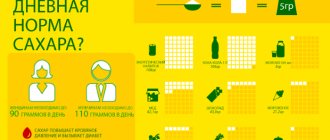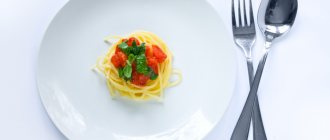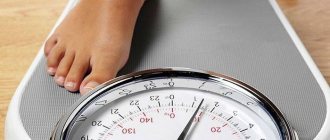If a woman goes on a diet and works hard on her abs, it means she should go to the sea in a week. Unfortunately, only significant dates force most ladies to pay attention to their excess weight. However, few people think about how much weight you can actually lose in a week. Diet predictions and actual results rarely coincide, for which there are several explanations.
How much weight can you lose in a week?
Minus 10 per week is the maximum that strict nutritional models promise. Many diets promise to get rid of 5–7 kg during this period. How much weight you can realistically lose in a week depends on several aspects:
- Initial mass. Ladies weighing more than 100 kg, with very strict restrictions, may well lose up to 10 kg, but if a woman or girl weighs within 60 kg, then the maximum weight will barely exceed 3 kg. But on average, how much weight you can lose in a week as a percentage is 5% of the initial weight.
- Floor. According to scientific data, men lose weight faster, which is due to metabolism, which is 10% faster in men.
- Age. After 45–50 years, the amount of muscle decreases, and the fat layer increases, which provokes a slowdown in metabolic processes. Therefore, young people lose weight faster than people who have overcome the forty-year mark.
- The maximum amount of weight you can lose in a week directly depends on your calorie deficit. The larger it is, the more intense the weight loss occurs.
- Duration of sleep. According to scientific research, people who sleep 8 hours lose more lipids compared to those who sleep only 6 hours.
- Duration of the diet. The initial stage for most people is accompanied by significant weight loss. But subsequently, when the body adapts to the new diet and regimen, it begins to use its reserves more economically, weight loss slows down, and in the future a plateau effect may even occur - when, despite the restrictions, the weight stays the same. Therefore, the results of the first, second and subsequent weeks will vary.
Summarizing, we can come to the conclusion that in a seven-day period it is possible to lose weight by 5 kg, and with a large body weight, by 10 kg. But this will not mean that the same amount of fat is lost.
A little instruction for everyone who wants to lose weight
Before we begin. This article will discuss how to lose weight. The purpose of this article is to find out how many kilograms you can lose weight in 1 week.
First of all, losing weight depends on how many calories you take in and how many of them you spend.
It's simple, if you eat less than you spend, you will actually start to lose weight. The amount of kilograms lost depends mainly on how large the calorie deficit is.
But this is not the only factor. Weight loss also depends on the health of the gastrointestinal tract, metabolic rate, level of physical activity, the thermic effect of foods and other conditions.
But eventually, all of these factors combine to create a calorie deficit—a calorie level below maintenance levels.
As a rule, in order to lose half a kilo in a week, you need to eat 500 calories less than your basal metabolic rate.
By this logic, if your basal metabolic rate is 2,000 calories per day, but you eat only 1,500 calories per day, and at the same time burn an additional 500 calories per day through exercise, then you can easily lose one kilogram in a week.
This is how diet and exercise lead to a calorie deficit, which in turn leads to weight loss.
So the answer to the question: “How many kg can you lose in a week?” - “enough,” at least at first.
If you are severely overweight, then your basal metabolism is higher, therefore, at first you will lose weight faster. For example, a man who is 180 centimeters tall weighs 120 kilograms and has a total body fat percentage of 32%. His basal metabolic rate is approximately 3,200 calories per day. Therefore, by cutting calories to 2000 and adding more physical activity, he will lose 2-3 kilograms per week.
If, while maintaining a calorie deficit, you also limit your salt intake, then water will go away. This is how incredible stories about losing 10 kilograms in a week appear.
Interesting on the topic: how to remove cellulite on the butt and effectively fight it at home on other parts of the body.
Yes, many of these stories are not credible, but some are quite true. By following the tips above, you can actually lose weight relatively quickly.
But that doesn't mean this approach will work week after week. It doesn't even mean it's a good idea and you won't get hurt later.
If you eat very little, how much weight can you lose in a week?
This question is often asked by people who have just embarked on the path of losing weight. Little is a subjective concept. Some people think that they eat in small portions, but do not notice the amount of food they eat in the intervals between main meals. The method of preparing food is also of great importance - the calorie content of the same product will vary greatly depending on whether it is boiled or fried in oil.
Only counting calories can give a clear picture. Methods of 1000 kcal, 1200 kcal, 1500 kcal often appear on the Internet. The last option is the most optimal. Weight loss with such limits varies between 700 g–1 kg per day, up to 5 kg per week. But the results will also vary for everyone depending on age, starting point, and physical activity.
How much weight can you lose in a week: fat loss
Most fast weight loss methods involve a detox effect. Excess fluid and stagnant feces are removed from the body, which has nothing to do with fat burning. Weight loss also occurs due to the loss of muscle tissue, and with protein deficiency, it is burned many times more intensely.
On a note! To lose 1 kg of fat, you need to burn 7700 kcal.
Even if the body is put into absolute fasting mode, it will take 4–5 days to burn 1 kg of fat. If you create a daily calorie deficit of 500 units, in a week a person will lose approximately 500 g of fat, while the deviation of the scales will be 2 kg.
If we talk about the percentage, the share of fat for each kilogram lost does not exceed 16%. According to observations, intensive fat burning begins only 10–15 days after the start.
PP diet for quick weight loss
Is there a fast weight loss diet that will get rid of excess weight and keep you healthy? Unfortunately no. Proper nutrition and rapid weight loss are absolutely incompatible things. How to distinguish an unhealthy diet from a pp diet?
- Short-term diets for quick weight loss limit calorie intake to 800-1000 calories. Although the critical minimum calories should not fall below 1200 per day.
- Unhealthy diets completely eliminate salt from your diet. Thus, a person loses weight due to water loss.
- Fast diets are often based on mono nutrition: 3 days kefir, 3 days rice and so on.
- Harmful diets are based on a huge protein content and almost completely exclude fats and carbohydrates, which undoubtedly leads to constant constipation and pain in the gastrointestinal tract.
The quickest diets that are often suggested actually have nothing to do with proper nutrition, so such diets should be strictly avoided.
Popular diets: how much weight can you lose in 1 week?
The number of diets is in the thousands. Some recommend creating a diet based on protein dishes, others on carbohydrates, and others suggest alternating, avoiding salt or some food group. Let's look at the most popular methods.
Protein diet
The main concept is to include foods with a high protein content in your diet: seafood, lean meat, fish, cottage cheese, egg whites, legumes and reduce carbohydrates as much as possible. These include the Dukan, Atkins, Kremlin diets and many others. The amount of carbohydrates allowed may vary, but the main principle remains the same.
Benefits of protein diets:
- weight loss up to 3–5 kg per week;
- muscle tissue is preserved as much as possible;
- Protein products provide good saturation.
Flaws:
- a large number of contraindications;
- lack of carbohydrates causes weakness, dizziness, migraines, decreased performance, and decreased brain activity;
- Excess protein foods provokes constipation, the development of gout, and the appearance of acetone odor from the mouth.
Petal Diet
There are two options - 6 and 7 petals, their number indicates the duration of the dietary course. How much weight can you lose in a week – from 2 to 6 kg.
The nutrition model is a complex of mono-diet days:
- fish;
- vegetables;
- bird;
- cereals;
- cottage cheese;
- fruits;
- exclusively water (seventh day in the 7 petals version).
Essentially, this is alternating protein and carbohydrate days. It is not recommended to swap positions. To increase your mood and motivation, you need to build a paper flower with 6 or 7 petals. Everyone signs according to the menu of the day. At the end of this day, the petal comes off.
The advantages of this approach include the following:
- there is no need to study long lists of permitted and prohibited foods, since the menu for one day involves the use of strictly one group of foodstuffs;
- an impromptu chamomile attached in a prominent place visually demonstrates progress;
- significant plumb line;
- budget set of products.
Vegetable and fruit diets
Most variations involve the use of seasonal vegetables or fruits, on which the diet is based; the menu can be supplemented with an egg, a portion of porridge or soup. Apple, carrot, beet or radish - the principle is the same for all, and weight loss occurs mainly due to the diuretic and laxative properties of the product. On average, up to 3 kg of weight is lost per week.
Salt-free diet
Complete abstinence from salt ensures a weekly weight loss of up to 3–5 kg. But the lack of salt does not in any way affect fat burning. Therefore, only water leaves.
Consequences of rapid weight loss
After following a Spartan diet for a week, many breathe a sigh of relief and return to their usual diet. As a result, the lost kilos quickly return, and often together with their “comrades”. The fact is that with rapid weight loss, water and waste products of the body are predominantly lost. The water balance is quickly restored, and after the economy regime, the thrifty body, taught by experience, begins to create new fat depots. As a result, the percentage of body fat increases, which negatively affects not only the scales, but also the volume of the body.
An equally deplorable consequence is sagging skin. In a short period of time, the dermis does not have time to regenerate, and the skin literally hangs, this is especially noticeable in the abdominal area - the appearance of a so-called apron on the arms. This cosmetic defect can only be corrected surgically, which not everyone has the courage or finances to do. Therefore, before setting a goal to quickly lose weight in a short period of time, it is worth remembering that the result will only be a deterioration in appearance.
Main advantages
Many people are interested in the benefits of potatoes and whether it is possible to carry out treatment with potatoes at home. Due to its exceptional and varied composition, potatoes have high functionality. The benefits of potatoes for people with metabolic disorders are undeniable, since this product neutralizes the effects of acids in the body, functioning as an alkali. It is enough to eat 1-2 pieces per day and the usefulness of potatoes will be beyond any doubt.
Be sure to read: How to pull yourself together and start losing weight?
Doctors advise their patients to eat potato dishes for gastritis and ulcers. The fact is that the fiber that the product contains does not irritate the intestines and acts very gently, but the product should be consumed only in boiled form.
However, there is a group of people who should keep potato dishes to a minimum in their diet. It has long been proven that potatoes are dangerous for diabetes due to their high zinc content. In addition, polysaccharides (starch), which predominate in potatoes, are considered complex carbohydrates and for a diabetic’s body this will be a serious burden that it may not be able to cope with. And yet, experts disagree on whether it is possible to eat potatoes or avoid them completely if you have diabetes. Some doctors allow the consumption of potatoes, but not more than 250 grams. per day, the main condition is proper preparation (the potatoes must be boiled). This is especially true for those who are planning to eat potatoes if they have type 2 diabetes.
To preserve the beneficial properties of potatoes as much as possible, it is better to cook them in their skins, this will preserve all the vitamins and minerals.
Due to its low calorie content, potatoes are not a prohibited product when following a diet; on the contrary, the body spends more energy on its processing.
If the benefits of potatoes are clear as day, then how can they be harmful? Whether there will be benefit or harm depends on how many calories are in potatoes, or more precisely, in the finished dish made from them. After all, there are a lot of cooking options; if you eat fried potatoes, then heaviness in the stomach and discomfort will be ensured.
As mentioned earlier, potato fruits contain corned beef, but it is also present in tubers. If the vegetables are not processed, have been exposed to light for a long time or are not ripe (this can be understood by their green tint), then the poison content is beyond the normal range. It is necessary to control the quality of the product, comply with storage conditions and periods.
The longer potato tubers are stored, the higher the level of corned beef becomes.
If you are dehydrated, potatoes will become “taboo”, since they remove fluid from the body, but with these properties it will be useful for people with kidney diseases.
How many kg per week can you lose weight without causing harm to your health?
Nutritionists strongly advise losing weight by no more than 4–5 kg per month. This will allow you to create a balanced diet: the body will receive all the necessary nutrients and microelements, and avoid the appearance of skin defects - stretch marks, sagging, loss of turgor and elasticity.
Rules for safe weight loss:
- Calculate your individual calorie intake. To do this, you can use an application on your phone or a calculator for your PC. The formula takes into account height, weight, age and gender, and level of physical activity. 10–15% should be subtracted from the resulting figure. This will be the daily calorie requirement for safe weight loss.
- Listen to the recommendations of nutritionists and drink at least 2–2.5 liters of fluid per day. Water helps eliminate toxic compounds that are formed as a result of the breakdown of lipids. Also, if you drink water 20–30 minutes before a meal, the volume of portions eaten will automatically be reduced.
- The menu should include proteins, fats, and carbohydrates. Sufficient consumption of proteins allows you not to lose muscle tissue in the process of losing weight, burns fat deposits faster, and proteins are also the building material for all cells.
- Carbohydrates are divided into fast and slow. The first include products containing sugar and wheat flour. These are sweets and confectionery. Such carbohydrates should be minimized. But slow ones, they are complex, are beneficial for losing weight. They provide a long-lasting feeling of satiety, contain dietary fiber, which improves the functioning of the gastrointestinal tract, and promotes the natural evacuation of waste products and toxic compounds. Complex carbohydrates – plant foods, cereals, fruits, vegetables.
- Fats also play an important role in weight loss. Healthy ones include unrefined vegetable oils (in limited quantities), fat contained in fish, nuts, avocados, and seeds.
- Refusal of empty calories - junk, fast food, sweet soda, confectionery.
- Minimize the consumption of fried foods, give preference to heat treatment methods such as baking, stewing, and boiling.
- Safe weight loss also involves limiting the consumption of alcoholic beverages. Despite the fact that the calorie content of the same beer is comparable to milk, intoxicating drinks are drunk in large quantities and also provoke severe attacks of hunger.
IMPORTANT! Informational article! Before use, you should consult a specialist.
What to eat on a healthy diet?
- Fermented milk products with a low fat content are very useful. For example, grainy 0 percent cottage cheese can be an ideal dinner that will not cause any harm to your figure. You can cook porridge with 1.5 percent milk, which is suitable for breakfast.
- Eggs are a healthy source of protein. A protein omelet with herbs, tomatoes and cheese, eaten in the morning, will leave you feeling full for 3-4 hours. A boiled egg will help you meet the required 50 calories for a snack.
- Buckwheat. This is a universal cereal that is rich in iron, which, in turn, supports the functioning of the immune system and has a positive effect on the intestines. Buckwheat can be steamed with boiling water in the evening and mixed with low-fat yogurt or milk in the morning.
- Oatmeal. As a rule, the most important product of all those who are losing weight, which contains carbohydrates, is oatmeal. All nutritionists strongly recommend eating it for breakfast, as it saturates the body with nutrients, perfectly suppresses appetite, and starts the metabolic process. Like a viscous substance, it envelops the stomach, and its fibers protect the mucous walls of this organ; oatmeal also has a beneficial effect in the presence of gastritis or ulcers.
- Chicken breast and turkey meat. Steamed minced chicken cutlets or turkey souffle will be an excellent addition to lunch, a worthy dinner. The most important thing is to follow the cooking rules; under no circumstances should you fry meatballs and cutlets in oil, only steaming is permissible.
- Boiled beef, stewed with carrots is an excellent lunch, which is ideally complemented by grilled vegetables, vegetable stew, for example, zucchini and tomatoes.
Be sure to read: How to quickly lose weight after childbirth? Answers to the main questions
If we talk about fruits, bananas and grapes are considered the most carbohydrate-rich. However, we should not forget their benefits. Despite the high percentage of carbohydrates, bananas have low calorie content. Several years ago, even the banana diet was at the peak of popularity, which included three fruits a day and three cups of coffee with milk without sugar; the duration of such a diet should not exceed more than three days.
Are sweets allowed for those on a diet? Experts give a positive answer. Just buy not harmful chocolates with simple carbohydrates, but natural products based on complex carbohydrate compounds. These include marshmallows, marshmallows, and marmalade. If you eat one thing in the morning, it will not cause damage to your figure. The listed products are necessary for the body, since in addition to carbohydrates they contain important microelements, minerals, and vitamin groups. Many have noted that in most cases, with severe dietary restrictions, health problems begin, nails break, teeth crumble and hair dries out.
All damage occurs due to a lack of nutrients, which the body, weakened by diet, so needs.
Many nutritionists prescribe a course of vitamins that you can get naturally.











